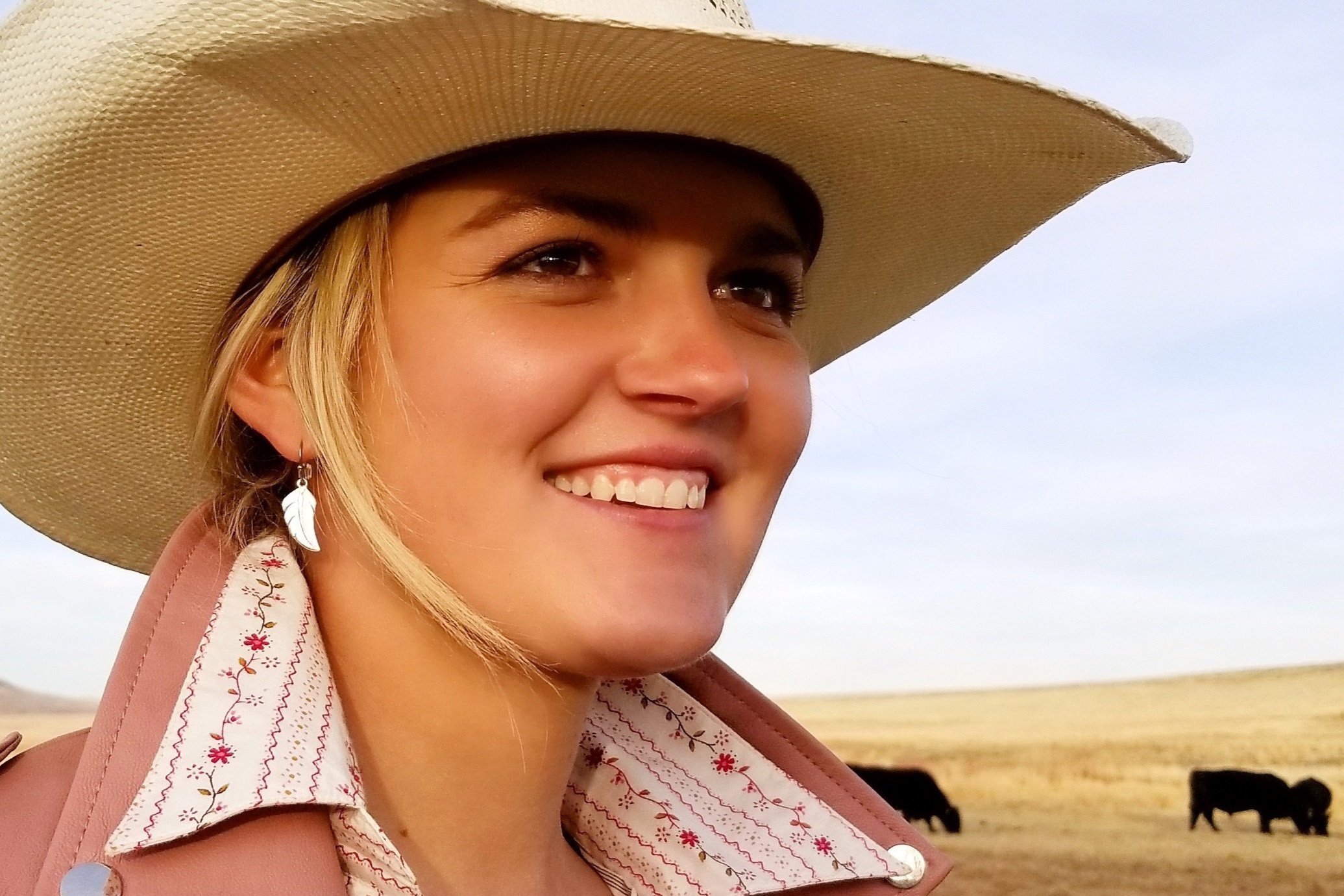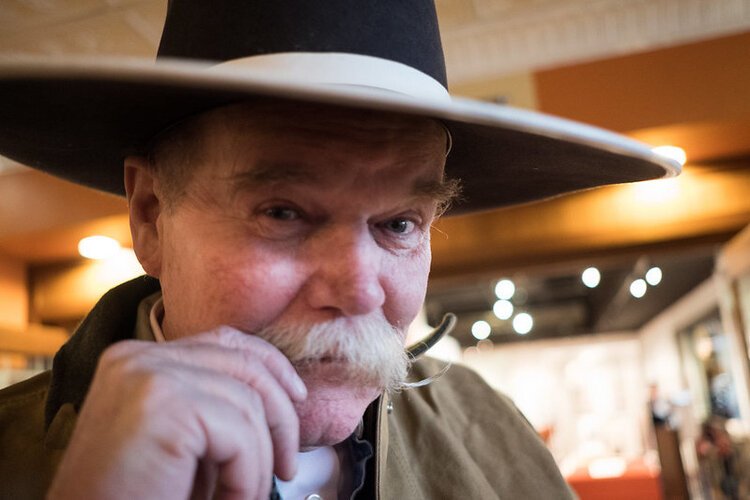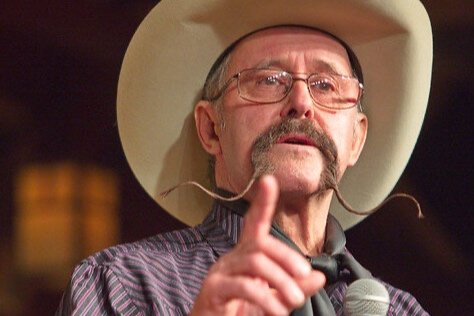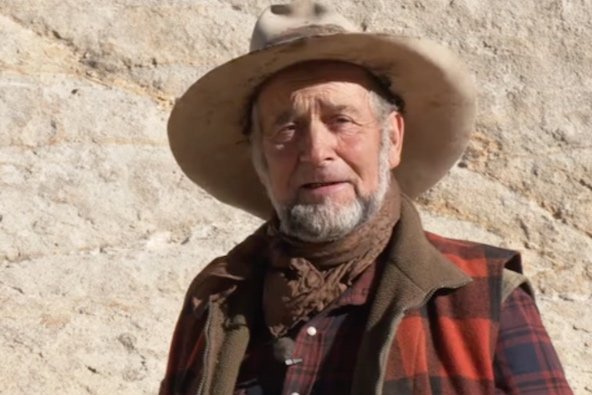Got a Question? Ask A COWBOY POET!
september 2024
This month, the cowboy poets whittle down a wide question about their writing as they answer this quandary:
How do you distill the vastness of the vistas you encounter into the slim space of a poem?
~ @carteagraphy
annie mackenzie:
Could it be distilled? The vastness of this vista,
Do I feel fulfilled, or aimless and alone?
I'd love to serve the solution, like a troubadour barista,
But it exceeds expression, it's too prodigious for this poem,
I continue to try to capture, a small genuine glimpse,
Of the reverence, the rapture, that I'm blessed to behold,
But I doubt the written word, will epitomize its essence,
And perhaps I'd prefer, if some things were left within my soul.
dw groethe:
When I write, I just sorta let it flow at first to see where the poem is headed. If I want something short and succinct, I may just go for a haiku and see what happens. The thing is, I don't need to be overly descriptive of the view itself, just enough for a quick visual, because the real heart of the poem is relaying the feelings you get from the landscape you're in. And really the only way to master that imagery is by writing, writing again, and then writing some more. This may not be the answer most folks are looking for, but it's the one I've found that works for me. Thanks for asking.
dw
waddie mitchell:
What was asked, though credible, has no good answer for me. Vistas have been written about for many centuries. Lavish and descriptive words have all been used, but what I see and what words convey are, more times than not, lacking. I can write about a draw behind my house and tell you how it is not too steep. How it is mostly sage and juniper on the south slope with blue bunch and rice grass fighting for their place. I can tell you the north slope is steeper with cattle, deer, and feral horse trails veering up and down the draw. In the winter, the north slope holds tight to the snow, not letting the sun melt it. I can tell you how a willow-covered spring is at the head of the draw where partridge hang.
All this is true, though I doubt you would have the same picture in your mind as I tried to convey. We relate description to what we know. You have been to a place like I told you about, and that is where you went and what you got out of it. That is how we relate through words.
To get around this, I've had some luck with a little trick. I write mostly story poems with characters. I make them describe what they see, taking that burden off me. But when the poet is the teller of the thought, I just limp along the best I can.
Here is a descriptive poem that is not a story but gives one a sense of the place.
June Evening
I sit on a lawn chair this late June just watching
a squirrel and a chipmunk exchanging what fors
Night birds audition while day songs are waning
and deadfall crack warning this forest ain’t yours
Daylight spills blue as new night snuffs the light out
Bats work under pressure to keep themselves fed
The half moon won’t rise until sometime some later
and prey impose guidelines on how they best tread
Dusk breezes and fragrance whisp over my psyche
All troubles loose clout when it comes the days wake
West mountains are last to relinquish profile
A humbling, magnificent statement they make
Crickets screech where ’bouts while frogs belch their flirtings
Coyotes chime in with their harmonized pride
Fox employ cunning to bring their young supper
and owls flute the warning, all rodents best hide
The night stalkers start shift while reptiles hole up
The slug and the earthworm won’t rise ’til the dew
Black bear prepare by their packing the pounds on
The cougar and lynx will outwit but a few
Some trees seem aware of their rustle and whisper
Hard answers appear, then will dart in a blink
The bigness top lit by a star-crowded night sky
while Earth drums the life force that makes it all sync
Wish this night would not end, I’ve want for more magic
I’d like to absorb all the wisdom held close
Seems secrets are leaked when our listening is honest
Doles pleasure full measure in generous dose
I suppose it is time I give this body rest
and loosen my hold on this solace of mind
As guest I’m impressed and feel privileged and grateful
A better recoup spot would be tough to find
Waddie Mitchell
yvonne hollenbeck:
Distilling the vastness of the vistas I encounter while writing a poem is perhaps the most important part of the process. When I write a poem, it is oftentimes the result of an idea or event that can sometimes involve a lot of description. I usually write the poem, then begin to cut a lot out of it. I do not like to recite a lengthy poem, and I find that very few people enjoy listening to the same. The old saying "less is more" is especially true in the construction of a poem. I do not like to have to explain what the poem is about and want it to stand on its own two feet, so it can be tricky to squeeze a lot of thought into a few lines, but it is something that is very important to the final outcome.
bill lowman:
Quite simple! My poems pretty much write themselves on instant inspiration. They have to record an event of truth that’s worthy of preserving. I don’t add false statements of exaggeration for prolonged flair. Your question brings to mind my decades of analyzing the subcultures’ writing of our cowboy culture that is reflected in our musings. Our family-owned rancher poets of the Upper Midwest and Northern regions traditionally write a much shorter poem to tell their story and get a point across. Get in, state your business, and get out. We own our own outfits and make our own business decisions from top to bottom. We manage time. It’s very important and costly to us. The day work cowboys and buckaroos are more known to write a very lengthy poem to achieve the same results, which reflects on perhaps their differing value of time.
dick gibford:
Let me begin with the opening paragraph of my poem “The Lone Cowboy.”
Vast desert sands of subtle grey, and mountain ranges far away,
Rimmed in by a deep blue sky, an occasional cloud a passing by,
With a desert floor of blue and green
And bunch grass clumps in between,
A hot dry wind softly moans,
As a cowboy enters the scene alone,
He is leaning ahead to save his horse,
For the distant mountains he sets his course,
Riding easy, jogging slow,
Leading a packhorse in tow.
There are times when writing, especially in the backcountry, when the spirit of the land hits the page just ahead of the pen. That's when you know you have a green light. That inspiration is a delicate thing indeed. Then the pen acts as a conductor, writing of that ever moving experience of our existence, sometimes capturing the distilled essence of infinity.









